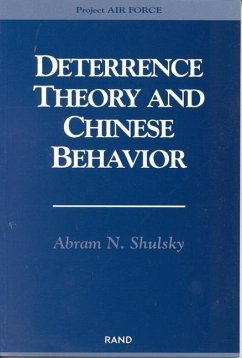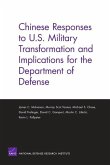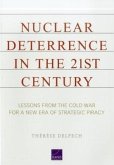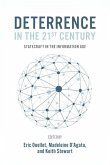China's recent reforms have led to unprecedented economic growth; if this continues, China will be able to turn its great potential power into actual power. The result could be, in the very long term, the rise of China as a rival to the United States as the world's predominant power; in the nearer term, China could become a significant rival in the East Asian region. In this context, the issue for U.S. policy is how to handle a rising power, a problem that predominant powers have faced many times throughout history. It is the contention of this report that the future Sino-U.S. context will illustrate many of the problems of deterrence theory that have been discussed in recent decades; deterrence theory will be, in general, more difficult to apply than it was in the U.S.-Soviet Cold War context. The key may be to seek nonmilitary means of deterrence, i.e., diplomatic ways to manipulate the tension to China's disadvantage.
Bitte wählen Sie Ihr Anliegen aus.
Rechnungen
Retourenschein anfordern
Bestellstatus
Storno








